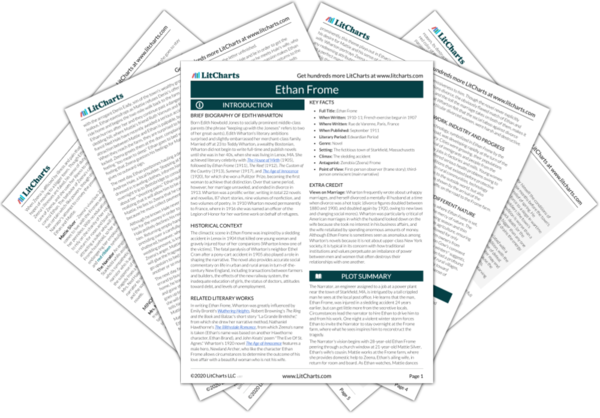LitCharts assigns a color and icon to each theme in Ethan Frome, which you can use to track the themes throughout the work.
Determinism and Free Will
Duty and Morality vs. Desire
Gender Roles and Marriage
Work, Industry and Progress
Hostile or Indifferent Nature
